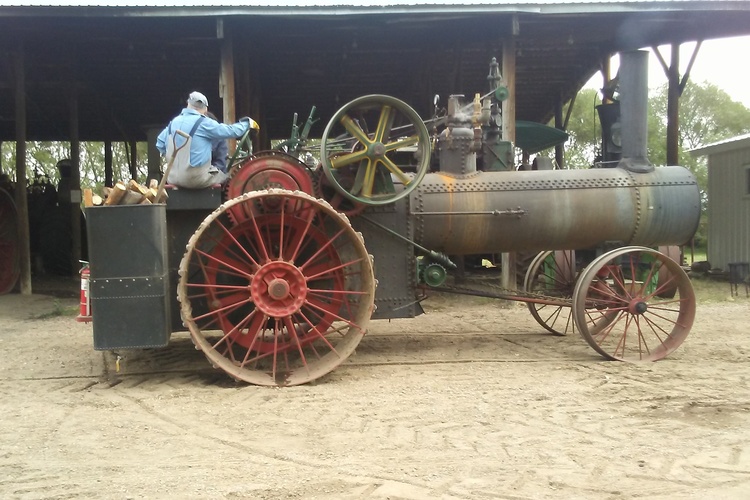Sep 17, 2024 As we crest the month of September and march steadfastly towards falling leaves, pumpkin spice lattes, and cozy sweaters, I can’t help but reflect on the incredibly dedicated, creative, and hardworking people that have shared their experiences of heritage volunteering with me over the summer months. I’ve walked away from each research interview with a sense of camaraderie from a shared dedication to safeguard various types of tangible and intangible heritage in Saskatchewan. I’ve been inspired by the passion, enthusiasm, and diligence that so many heritage workers and heritage volunteers have for telling stories, documenting history as it happens, creating welcoming environments, and building community. Sources: Quotes are from interviews with volunteers. Government of Saskatchewan. “National Volunteer Week Celebrates the Contributions of Saskatchewan Volunteers.” Published April 17, 2023. Accessed August 20, 2024. Government of Saskatchewan. https://www.saskatchewan.ca/government/news-and-media/2023/april/17/national-volunteer-week-celebrates-the-contributions-of-saskatchewan-volunteers. Hahmann, Tara. “Volunteering counts: Formal and informal contributions of Canadians in 2018.” Published April 23, 2021. Accessed August 20, 2024. Statistics Canada. https://www150.statcan.gc.ca/n1/pub/75-006-x/2021001/article/00002-eng.htm. “It’s a Saskatchewan Thing”

Growing up, I remember watching my mom volunteer almost every time my elementary school class called for volunteers. She was always ready to create something wildly fun and creative for a bake sale or sign up to be a parent chaperone on a school field trip. As someone born and raised in Saskatchewan who had mandatory volunteer hours in high school (and has been greatly inspired by their mom), volunteering has always been something I felt the urge to do in my adult life I often agree to informal volunteering without a second thought. It’s something that I’ve heard echoed in many of my research interviews, especially from those who grew up in small town or rural Saskatchewan. There is a desire to help out, to give back, and to create spaces where connection, learning, and reflection can take place, even if it’s as simple as flipping burgers for a heritage project fundraiser or offering to cut the grass at the local cultural centre.
Over the course of the summer I heard a common sentiment across multiple interviews and survey responses: volunteering to safeguarding heritage not only offered a deep sense of satisfaction and fulfilment, but was part of people’s identity. This is a sentiment I relate to this too. I know I feel a sense of fulfillment when I engage with heritage volunteering, especially when I can share and exchange living cultural heritage with others. It contributes to my love of lifelong learning, helping others (and myself!) make meaningful connections to the past, and experiencing the world through different perspectives.
“You always have people talking about the things that made Saskatchewan into the province that it was, the hard-working ethic and this and that. And for me, I agree with that to a point. But in my personal opinion, I think one of the things that really made Saskatchewan kind of stand out more as opposed to some of the other provinces and forged its identity was that volunteerism.” – Alexander Yaskowich
Volunteers in the Saskatchewan heritage sector put in the work to ensure that the richly diverse heritage of Saskatchewan remains something current and future generations can experience. In the 2018 Canada-wide General Social Survey on Giving, Volunteering and Participating, Saskatchewan has had the highest rate of formal and informal volunteerism in the entire country, with 55% of residents participating in formal volunteering activities and another 80% participating in informal volunteering activities. In 2023, 330,000 Saskatchewanians volunteered province-wide, with nearly 1 out of 3 participating in some sort of formal volunteering. Heritage volunteers help take ownership of Saskatchewan’s heritage, helping to develop knowledge and understanding of each community’s past and present while ensuring its accessibility for future generations. Many of the people I spoke with highlighted the importance of making heritage relevant by reflecting the community that existed in the past and celebrating the community that exists now.
“I think Saskatchewan, I think we would lose a vital part of our provincial or regional or local identity… a significant part of any group identity is having a shared history, whatever that looks like, and it's not just interesting stories… history, heritage forms a part of our collective identity – who we think we are – and it seems to me that our local, regional and ultimately provincial identity would suffer significantly over time if we didn't have those heritage efforts.” – Jonathan Kalmakoff
Volunteers are essential to many heritage organisations, places, and projects. They are the reason that many special heritage events actually come to fruition; that certain aspects of the past are remembered and passed on; and that various aspects of cultural, natural, and built heritage can be shared, celebrated, appreciated, and experienced. In so many places they are the reason the doors of heritage places remain open and accessible. Heritage volunteers across the province are doing crucial work to develop a sense of belonging and understanding of place, contributing to the identity of the province.
As things change and it becomes increasingly difficult to retain volunteers, I can’t help but wonder if such a heavy reliance on volunteers within the heritage sector is sustainable. What will be lost without volunteers to keep heritage living, and what other options are there to safeguard the diverse heritage of Saskatchewan? Who will be there to welcome visitors from near and far coming to experience the distinct and vibrant heritage Saskatchewan has to offer? Heritage helps build stronger communities where people want to stay and put down roots. We all like to feel like we belong and that we are contributing to something positive for ourselves and our communities. We need to have some serious conversations to find a way to make heritage sustainable, accessible, and relevant while ensuring that heritage volunteering remains a source of physical, mental, and emotional wellbeing, fun, fulfilment, and part of the fabric of Saskatchewan’s identity.
